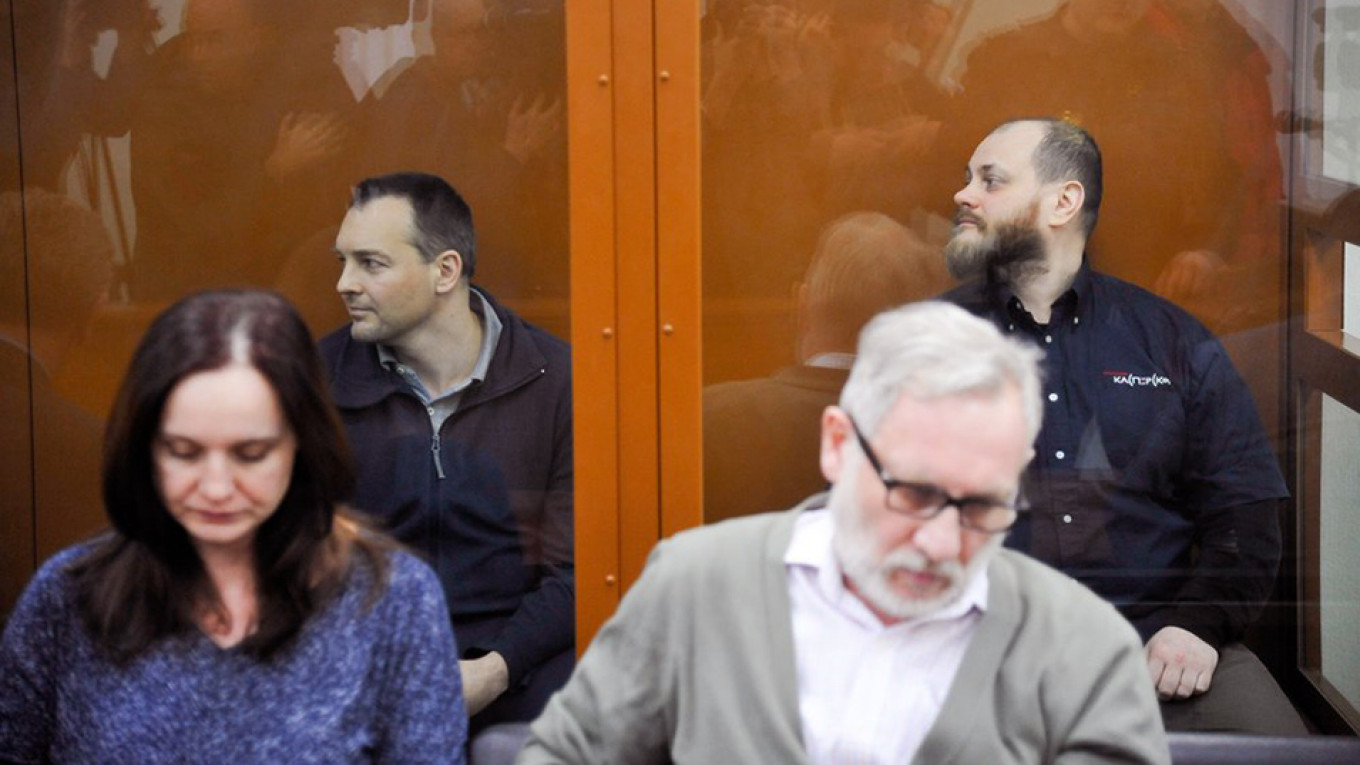
A Russian court on Tuesday sentenced a former state security officer and a cybersecurity expert to long jail terms after finding the two men guilty of committing state treason in the interests of the United States.
The two were arrested in December 2016 shortly after the United States accused Russia of trying to influence its presidential election through computer hacking, an accusation Moscow denies.
Reuters has reported in the past that researchers in the cybersecurity field in both countries believe Moscow intended the arrests as a signal, in response to the U.S. hacking accusations, that it would now take action against forms of cooperation that it previously tolerated.
One of the two men, Sergei Mikhailov, used to work at the security center of Russia’s Federal Security Service (FSB), while the other, Ruslan Stoyanov, was the head of the computer incidents investigation team at Russian cybersecurity firm Kaspersky Lab.
A Moscow military court on Tuesday sentenced Mikhailov to 22 years in a maximum security prison and Stoyanov to 14 years in a similar facility, Russian news agencies reported.
Both were convicted of passing secret information to foreign intelligence services, the agencies said. Ivan Pavlov, a lawyer involved in the case, has previously told Reuters that the men were accused of cooperating with U.S. intelligence services.
The case was classified as secret and the trial held behind closed doors. The FSB has declined to comment, while Kaspersky has said the charges related to a period before Stoyanov joined the company in 2012.
Pavlov has previously told Russian media that Mikhailov had originally confessed to treason, but had then retracted that confession. It’s unclear, because of the secret nature of the proceedings, how Stoyanov pleaded.
A businessman and a source connected with their investigation told Reuters in 2017 that the treason charges related to allegations first made by a Russian businessman in 2010.
Those allegations suggested the men had passed secrets to U.S. firms, which had in turn shared them with U.S. intelligence agencies.

Leave a Reply